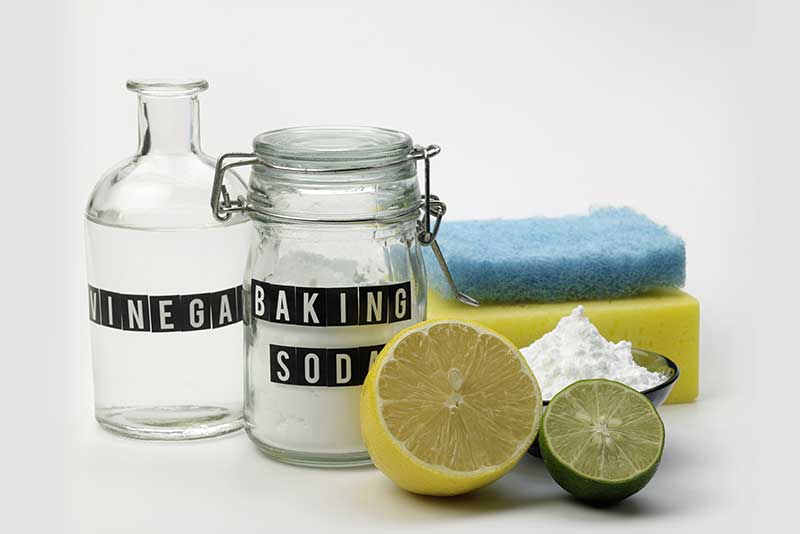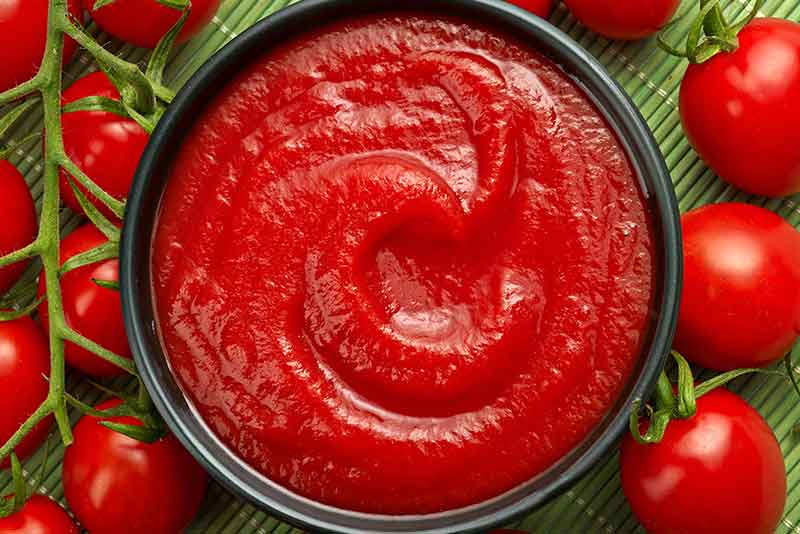Are your copper utensils losing their lustre? Do you want to restore their brilliant shine without using harsh chemicals? Look no further! In this guide, we will provide you with easy steps to clean your copper utensils at home, leaving them looking pristine and radiant. Say goodbye to tarnish and dullness, and welcome back the dazzling glow of your cherished copper cookware. Let’s explore how to clean copper utensils at home using readily available ingredients and eco-friendly methods.
Ingredients For Cleaning Copper Utensils:
- Vinegar: Vinegar is a versatile household ingredient that works wonders on copper. Its acidic properties help break down tarnish and restore the shine to your copper utensils.
- Salt: Salt acts as an abrasive agent in the cleaning process. It helps remove stubborn tarnish and grime, allowing the vinegar to work its magic more effectively.
- Flour: Flour is used to thicken the vinegar and salt paste, ensuring it adheres to the utensils and stays in place while it works its cleaning magic.
- Baking Soda: Baking soda is a gentle yet effective cleaner that helps remove tarnish from copper. It has mild abrasive properties that assist in lifting stains and restoring the natural shine.
- Lemon Juice: Lemon juice is known for its acidic nature, which makes it an excellent natural cleaner for copper. It helps dissolve tarnish and restore the lustre of your utensils.
- Tomato Ketchup: Tomato ketchup might sound like an unusual choice, but its natural acidity and mild abrasive properties make it a surprisingly effective copper cleaner. It can help remove tarnish and bring back the shine to your utensils.
Now that you know the secret ingredients and their superpowers, you’re ready to tackle that tarnished copper and bring back its dazzling brilliance. Get ready to show off your sparkling copperware like a pro!
DIY Copper Cleaning Recipe:
Create your own homemade copper cleaning liquid by following these simple recipes:
1. Cleaning Copper Utensils Using Vinegar and Salt:

Ingredients:
- 1/4 cup vinegar
- 2 tablespoons salt
- Flour (as needed)
Instructions:
- In a bowl, combine the vinegar and salt to create a paste.
- If the paste is too runny, add a small amount of flour to thicken it.
- Apply the paste to the copper utensils, focusing on areas with tarnish.
- Let it sit for 15-20 minutes.
- Gently scrub the utensils using a soft cloth or sponge.
- Rinse thoroughly with water and dry with a clean cloth to bring the lost lustre of your copperware back.
2. Cleaning Copper Utensils Using Baking Soda and Lemon Juice:

Ingredients:
- 2 tablespoons baking soda
- Lemon juice (as needed)
- Water
Instructions:
- In a bowl, mix the baking soda with enough lemon juice to form a thick paste.
- Apply the paste to the copper utensils, ensuring to cover all tarnished areas.
- Allow the paste to sit on the utensils for 15-20 minutes.
- Gently scrub the utensils using a soft brush or sponge.
- Rinse the utensils with water and dry them thoroughly.
3. Cleaning Copper Utensils Using Tomato Ketchup:

Ingredients:
- Tomato ketchup (enough to cover the copper utensils)
Instructions:
- Apply a layer of tomato ketchup to the copper utensils, ensuring all tarnished areas are covered.
- Allow the ketchup to sit on the utensils for approximately 30 minutes.
- Gently scrub the utensils using a soft cloth or sponge.
- Rinse the utensils with water and dry them thoroughly.
Maintaining Copper Utensils:
To keep your copper utensils looking their best, consider these additional tips:
- Regular Cleaning: Incorporate the DIY copper cleaning process into your routine to maintain the shine of your utensils. Aim for a monthly cleaning schedule or as needed.
- Avoid Harsh Scrubbing: While copper is a durable material, excessive scrubbing with abrasive materials can cause damage. Stick to gentle copper cleaning techniques to preserve the copper’s integrity, especially if you aim to clean copper utensils daily.
- Protect from Humidity: Copper is prone to oxidation and can develop a patina over time. To prevent excessive tarnishing, store your copper utensils in a dry and well-ventilated area.
- Polishing: Apply a protective coating of beeswax or mineral oil after cleaning to slow down the oxidation process.
Precautions:-
Now that you know how to clean copper utensils at home, here are some precautions you must consider.
- Wear protective gloves to shield your hands from chemicals and irritants.
- Work in a well-ventilated area to avoid inhaling any fumes.
- Use gentle scrubbing motions to prevent scratching the copper surface.
- Pay attention to any decorative elements or delicate parts that may require extra care.
- Follow the instructions carefully and use the recommended ingredients and quantities.
- Rinse the utensils thoroughly after cleaning to remove any residue.
- Dry the copper utensils completely to prevent water spots or damage.
- Store your clean copperware in a safe place to avoid re-tarnishing.
Conclusion:
Cleaning copper utensils at home doesn’t have to be a daunting task. By embracing eco-friendly DIY copper cleaning liquids, you can effectively remove tarnish and restore the lustre of your copper cookware. Remember to maintain your copper utensils regularly and store them properly to enjoy their beauty for years to come. So, say goodbye to harsh chemicals and hello to a greener way of cleaning copper utensils!
References
https://www.sciencewithme.com/fun-science-experiment-cleaning-copper
FAQs

Mrs. Pushpa Khurana is a remarkable academic and culinary expert who has excelled in both education and cooking. Her academic Read more


